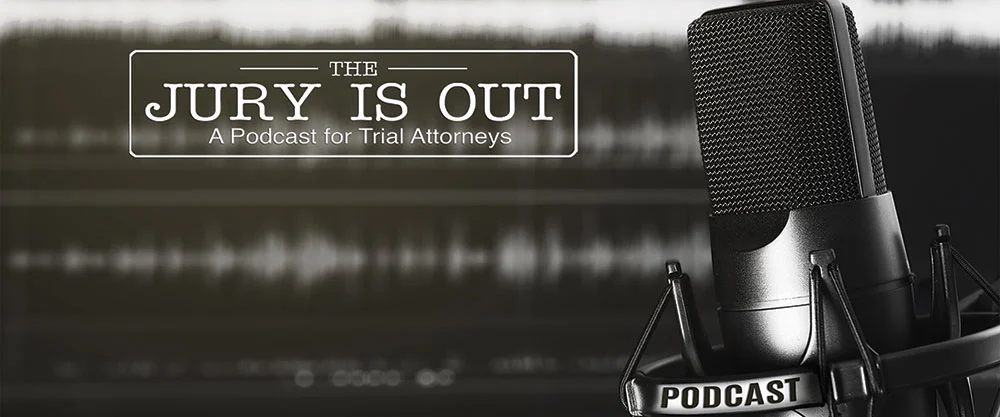What Do 1,500 People Think About Serving as Jurors During the COVID-19 Pandemic?
By: Simon Law | June 30, 2020

Trial attorneys have had to think outside of the box in order to represent their clients during the pandemic. Like everyone else, we have leaned hard on technology to conduct client interviews, to meet filing deadlines, to confer with judges on Zoom and to keep our cases moving in the right direction. Those of us who try cases before juries, however, have hit a stubborn bottleneck: How can we safely try cases before juries?
Very few jury trials are being conducted in the United States (https://public.tableau.com/profile/ncscviz#!/vizhome/StateCourtResponsestoCOVID-19/CovidTheCourts). Oregon is among the few states that have taken steps to reinstate jury trials, but rebooting jury trials has proven difficult (https://www.nytimes.com/2020/06/10/us/coronavirus-jury-trial-oregon.html). The problem is as obvious as it is challenging: Jurors traditionally sit close together as they hear evidence as a group, then they pack into a single room where they deliberate in close quarters. That’s a big problem.
This traditional approach for a jury trial is not safe in the age of COVID-19, which has led many judges and trial lawyers to wonder what whether and how we should conduct jury trials at a distance. How can we make sure that jurors are able to do their jobs well while keeping them safe? John Campbell has brainstormed this issue extensively. Campbell is the founder of Empirical Jury. Empirical Jury, who helps attorney study cases using scientific methods and statistical analysis, wanted to know more, so it could better advise its clients. What do people think about serving as jurors? There’s “no need to guess,” according to Campbell, who discussed his findings on “The Jury is Out,” a podcast produced by the Simon Law Firm in St. Louis, Missouri.
Empirical Jury interviewed 1,500 people, then crunched the data. The resulting report, “Analysis of the Impact of Covid-19 on Jury Attitudes, Behavior, and Willingness to Serve as Jurors,” provides important information for attorneys and policy-makers:
- Jurors are nervous about trials. Roughly 3 out of 4 jurors said they were nervous or somewhat nervous about attending a trial because of concerns about Covid-19.
- 46% said they would actively attempt to avoid jury duty all together as a result.
- And a full 30% said they would ask to be excused due to their discomfort serving in close spaces.
- 9% said they would inform the court that if masks were required, they would not or could not comply.
- We asked jurors if they were forced to come to court, who they would blame. The vast majority said they would blame no one. Only a small share of jurors said they would blame the plaintiff or the defense. So, we found no evidence that the plaintiff would be punished for going to trial. This updates, and is inconsistent with, earlier findings from other entities who did research in this area.
Campbell followed up this research by seeking the reactions of hundreds of real-life potential jurors to five potential approaches for conducting jury trials during the pandemic:
- Video Trial from Home (Trial proceedings are recorded and edited; jurors view proceedings at home on a tablet or computer).
- Video Trial at Court (Trial proceedings are recorded and edited; jurors view proceedings at court, sitting at a distance from one another).
- Video Feed – Live at Home (The trial is streamed live to jurors, who view it at home).
- Video Feed – Live at Court (Jurors view the live-streamed trial at the courthouse, in cubicles separated from each other)
- Normal Trial with Distancing (Jurors view the trial live and in-person, at a distance from attorneys, judge, witnesses and each other).
Each of these approaches would involve jurors deliberating as a group (either participating digitally or in-person, at a distance).
It’s one thing to sketch out five possible approaches for jury trials during a pandemic, but what would people actually think about sitting as a juror under these five conditions? Campbell once again reminds us that there is no need to guess. These are his central findings:
- 41% rated watching a trial at home, on their own schedule (asynchronous), as their first choice.
- Another 26% rated watching a trial at home, streamed live (synchronous).
- Notably only about 1 in 5 jurors (23%) viewed a traditional trial as their first choice.
Empirical Jury included many other topics as part of the questions in his surveys. For instance, he measured whether the potential jurors knew someone who had COVID-19, whether they knew whether someone who became ill or died as a result of COVID-19, whether COVID-19 impacted their ability to earn an income, their views of health care workers, and their attitudes to lawsuits. He then used this data to determine whether these factors would affect the win-rate at trials and whether the participants would be reluctant to serve as jurors. Campbell found that many jurors would be reluctant to serve:
46% of jurors said they’d actively seek to avoid jury duty because of COVID. 30% of jurors say that they would ask to be excluded, specifically asked to be excluded because they don’t like close spaces right now. Another 9% are on the other end. They say they would refuse to wear masks because they don’t believe it would be appropriate to require them to wear masks.
Empirical Jury’s work is not done. Campbell says, “we’re committed to gathering it across cases, across months and continuing to refine.” Campbell discussed his findings with attorneys John Simon and Erich Vieth in two related episodes of “The Jury is Out,” a podcast by and for trial lawyers. https://simonlawpc.com/category/podcasts/the-jury-is-out/
Response to The Jury is Out has been overwhelmingly positive, and downloads are surging. Subscribe today!
The Jury is Out is available on iTunes, Spotify, or Podbean. New episodes drop every Wednesday. For additional information or to schedule an interview or appearance, contact Angela Louis at The Simon Law Firm alouis@simonlawpc.com.